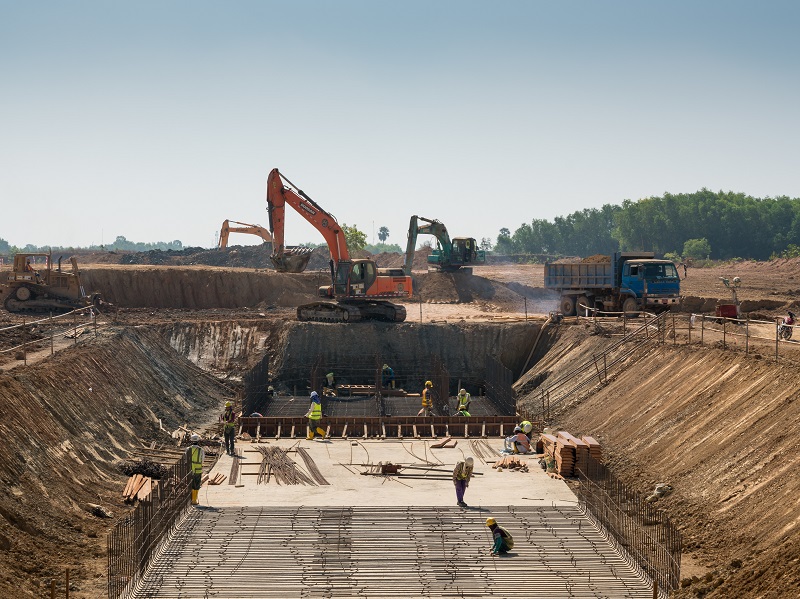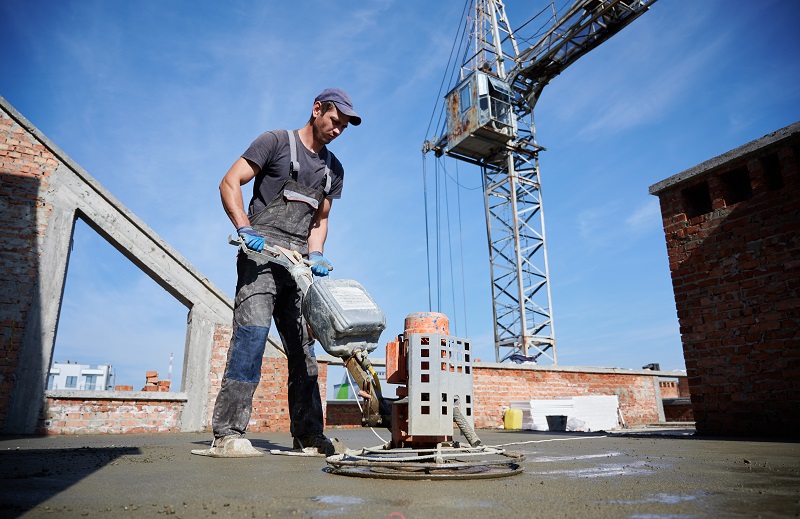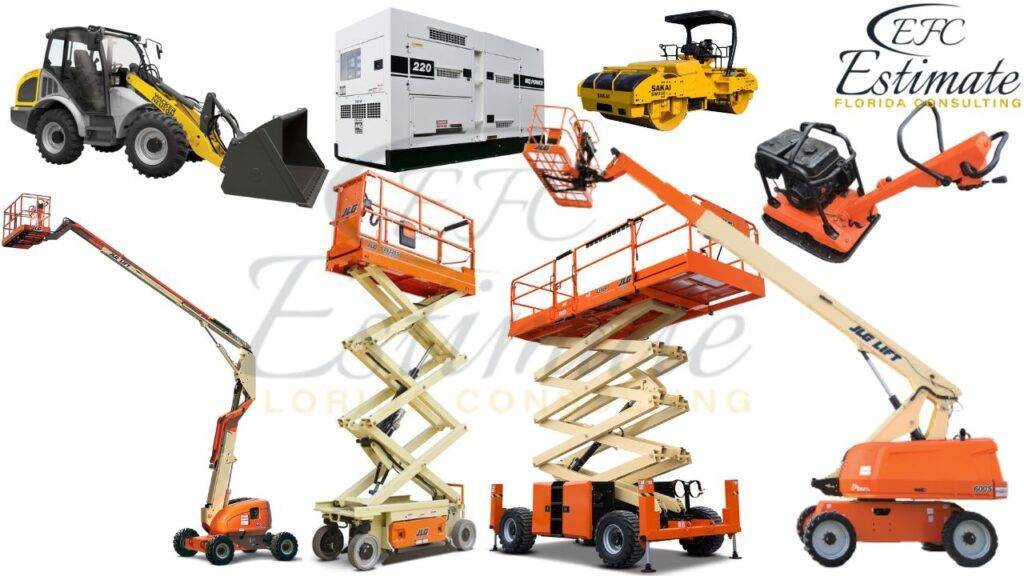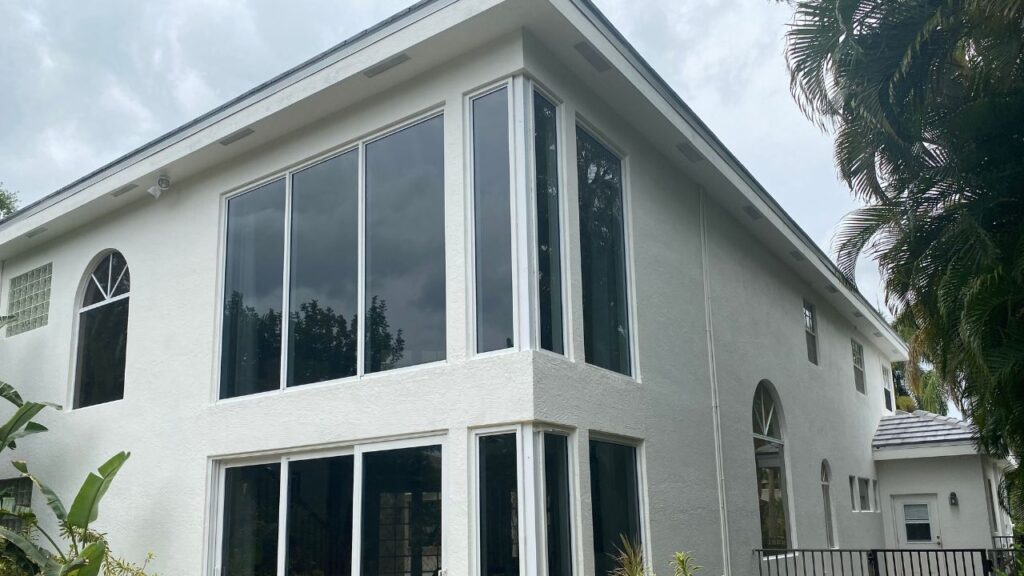Our Experience
- We provide estimates without any hassle.
- We have professional estimator with years of experience.
The demand for sustainable living is on the rise. Lowering energy consumption and cutting utility costs is now a priority. Here, we’ll look at energy efficiency in concrete block homes. It’s not just money-saving – the environment benefits too!
Concrete blocks have many energy-saving advantages. The walls absorb and release heat slowly, meaning less reliance on HVAC systems. Plus, proper insulation enhances efficiency. And materials are often sourced locally, so transportation emissions are reduced.
Don’t miss this opportunity to make your home more energy-efficient and environmentally friendly. Consider concrete block homes. Together, let’s contribute to a greener future while saving on bills!
These energy-efficient features align with global efforts to combat climate change. Passive solar design, efficient lighting systems, and renewable energy sources like solar panels or geothermal heating can all reduce carbon footprints.

Energy-efficient features in homes constructed with concrete blocks contribute to lower utility costs and reduced environmental impact. These homes optimize resource utilization, ensuring maximum energy conservation and sustainability.
The following points highlight the key reasons why energy efficiency in these homes is advantageous:
In addition to these benefits, concrete block homes also provide superior air quality and noise reduction, creating a comfortable living environment. With their durability and resistance to natural disasters, these homes are a long-term investment that offers peace of mind.
Pro Tip: Consider incorporating energy-efficient appliances and smart home technology to further enhance the energy efficiency of your concrete block home.
Concrete block homes: bringing the efficiency of a fortress to the utility bills battlefield.

Concrete block homes are a popular choice in the construction industry due to their many advantages. Firstly, they offer superior thermal insulation, resulting in reduced energy consumption and lower utility bills. Plus, they are tightly fitted together during construction, meaning no air leaks or outside noise infiltration.
On top of that, they are extremely durable, fire-resistant, and pest-resistant.
Furthermore, these homes require minimal maintenance and can last for generations. Thus, concrete block homes are a great way to save money, increase comfort levels, and help the environment. Don’t wait! Take advantage of these benefits before it’s too late.
Energy efficiency is a must for concrete block homes. Known for their strength and durability, they can be tricky to keep efficient. To get the job done, one must use high-quality insulation materials. This helps regulate the indoor temperature, making it cooler in summer and warmer in winter. It also reduces reliance on heating and cooling systems, plus energy consumption too!
Additionally, energy-efficient windows and doors are a great help. They minimize heat transfer, preventing drafts and keeping all the conditioned air inside. This cuts down on energy bills and keeps the home comfy!
Solar energy utilization is another great option. Installing solar panels on the roof of a concrete block home can generate clean electricity. This reduces dependence on traditional power grids and contributes to a greener planet.
John’s story is a prime example of energy efficiency’s success. He recently bought a home notorious for its high energy consumption. But he was determined to make a change. He invested in better insulation, new windows, and solar panels. In no time, he saw a drop in his energy bills and an increase in comfort. He was elated with the outcome – saving money and becoming an advocate for energy efficiency!
A concrete approach to lower utility costs in homes involves optimizing energy efficiency. This can be achieved through various measures, such as insulation, efficient appliances, and smart home technologies. Implementing these strategies in concrete block homes can lead to significant savings on utility bills while reducing the environmental impact associated with excessive energy consumption.
Considering these strategies supports the immediate need to address energy efficiency in concrete block homes. By implementing these measures, homeowners can not only lower their utility costs but also contribute to a sustainable future. Don’t miss out on the opportunity to save money and reduce your environmental footprint. Start making energy-efficient choices for your concrete block home today. Is your house colder than your past relationships? Time to insulate and give that concrete block home some much-needed warmth without breaking the bank.
Maximize your metal business’s potential with our competitive financing options

Maximizing energy efficiency in homes of concrete block construction requires creative ideas. Here are six that have been found effective:

Other details matter too! Sealing air leaks, proper insulation installation, and energy-efficient windows and doors all contribute to energy efficiency.
Proper Insulation Materials
Insulating materials are crucial for lowering utility costs in concrete block homes. Let’s delve into some key details and a captivating history related to this topic.
Here is a table of different insulation materials often used in concrete block homes:
Insulation Material | R-value |
|---|---|
Fiberglass | 3.14-4 |
Cellulose | 3.5-3.7 |
Polyurethane | 6-7 |
Besides the conventional options, there are modern alternatives available too. Reflective foil insulation, for instance, works by reflecting radiant heat away from the interior space, providing effective thermal resistance. This type of insulation is typically used under roofs to prevent heat buildup.
Interestingly, the concept of insulating materials dates back many years. Ancient civilizations like the Egyptians and Romans used natural insulators such as mud bricks and animal hair. They knew these materials regulated interior temperatures in their buildings.

Looking for a reliable construction equipment rental company? Look no further. Rent from us today.
Wall Insulation Techniques
Insulating concrete block homes is essential for reducing utility costs. Implementing effective insulation methods can boost energy efficiency and lower monthly bills. To show the different wall insulation techniques, a table is provided:
Technique | Description |
|---|---|
Exterior Insulation | Insulation material on exterior of concrete walls |
Interior Insulation | Insulation material on interior of walls |
Cavity Wall Insulation | Filling gap between inner/outer walls with insulating materials |
Besides these popular techniques, there are unique details to consider. For example, using insulated concrete forms (ICFs) can provide superior insulation compared to traditional methods. Additionally, radiant barriers in the attic can prevent heat transfer and reduce energy consumption.
To reach peak results, certain suggestions should be followed.
These wall insulation techniques, combined with tailored suggestions, let homeowners reduce utility costs while enjoying comfort and energy efficiency in their concrete block homes.

Roof and Floor Insulation Techniques
Insulating roofs and floors of concrete block homes is vital in trimming down utility costs. Proper insulation keeps the inside temperature consistent, therefore no unnecessary heating or cooling is needed.
Here are a few great insulation techniques for roofs and floors:
These techniques improve the energy efficiency of concrete block homes by putting a stop to heat gain or loss through the roof and floors. Plus, they bring a cozier living atmosphere, making HVAC systems less necessary.
Pro Tip: It’s a good idea to get the opinion of a pro contractor when deciding on the best insulation techniques for your concrete block home. They have valuable expertise and can make sure the installation is done correctly, taking full advantage of energy savings.

Energy-efficient windows and doors can offer various benefits like insulation, reduced energy consumption, UV protection, noise reduction, and long-term cost savings. These features come with different styles and designs to fit varying architectural preferences. Consulting with professionals can help you choose the right ones for your home. So, invest in energy-efficient windows and doors now! Get insulation, reduced energy costs, UV protection, and a peaceful environment. Plus, get long-term cost savings and an aesthetically pleasing home. Don’t wait; take action today!
Let’s explore the components and functions of HVAC systems for energy efficiency:
These parts work together to create a comfortable environment and save energy. However, there are unique features of HVAC systems in concrete block homes.
Concrete blocks have insulation properties and thermal mass, which help maintain heat. Additionally, sealing windows/doors stops excess heat loss/gain.
HVAC systems have a major impact on energy consumption and costs. Don’t miss out on savings and keep your home comfortable – optimize your HVAC system now!

The impact on the environment resulting from the energy efficiency measures implemented in concrete block homes can be significant. Measures such as improved insulation and use of energy-efficient appliances can lead to reduced energy consumption, resulting in lower greenhouse gas emissions. Additionally, the use of sustainable construction materials in concrete block homes can help conserve natural resources and reduce waste generation. Overall, the environmental impact of energy efficiency in these homes is positive and aligns with sustainability goals.
Table: Environmental Impact of Energy Efficiency in Concrete Block Homes
Impact | Description |
|---|---|
Energy Consumption | Reduced energy consumption due to improved insulation and energy-efficient appliances. |
Greenhouse Gas Emissions | Decreased emissions resulting from lower energy consumption. |
Resource Conservation | Sustainable construction materials used in concrete block homes help conserve natural resources. |
Waste Reduction | Reduced waste generation due to sustainable construction practices. |
Concrete block homes offer unique advantages in terms of energy efficiency. The thermal mass of these homes helps regulate indoor temperatures, reducing the need for excessive heating or cooling. Moreover, the durability and low maintenance requirements of concrete block homes contribute to their long-term sustainability. By minimizing the energy demand and environmental impact associated with heating, cooling, and maintenance, these homes provide a sustainable housing solution.
True History: The integration of energy efficiency measures in concrete block homes has been gaining traction over the years. With increased awareness of climate change and the need for sustainable living, homeowners and builders alike have recognized the importance of reducing energy consumption and environmental impact. This has led to the development and implementation of energy-efficient techniques and materials in concrete block homes, contributing to a more sustainable built environment.
Concrete block homes: finally, a way to decrease your carbon footprint without having to give up avocado toast!
Energy efficiency in concrete block homes can cut greenhouse gas emissions. Insulation, windows, and HVAC systems that use less energy reduce CO2 and other gases. This cuts down on climate change.
Renewable energy sources like solar and wind are a clean, sustainable option, and cut reliance on fossil fuels. Smart home tech optimizes energy usage and lowers emissions.
Maximizing emission reductions in concrete block homes needs proper waste management. Recycled materials for construction reduce pollution from new production. Capturing and storing carbon emissions from manufacturing also helps the environment.

Enhancing Energy Efficiency for Concrete Block Homes: Preserving Natural Resources
Sustainable living requires the conservation of natural resources. So, it’s key to understand how energy efficiency in concrete block homes contributes to this. Here are some ways it does:
Plus, eco-friendly practices like proper insulation, effective ventilation systems, and renewable energy sources further boost resource conservation in concrete block homes.
Fun Fact: U.S. Department of Energy (DOE) studies show that insulated concrete block homes can cut energy consumption by up to 50%!

Concrete block homes offer an effective way to save money on utilities and be environmentally conscious. Using concrete blocks provides insulation to maintain comfortable temperatures, reducing the need for heating or cooling. Insulated concrete forms (ICFs) add even more energy efficiency by providing strong insulation and limiting air leakage. Plus, energy-efficient appliances and lighting fixtures can further optimize performance.
The advantages of energy efficiency in concrete block homes go beyond cost savings. With less reliance on heating and cooling, these homes can drastically reduce greenhouses gases and benefit the environment. Furthermore, concrete blocks create durable structures that require little maintenance, resulting in less waste.
One homeowner’s example displays the potential of energy efficiency in concrete block homes. Through lowered utility bills and improved comfort, they were able to live a better life while being socially responsible. Their experience demonstrates the worth of energy-efficient housing options.
Energy efficiency in concrete block homes refers to the use of construction techniques and materials that reduce energy consumption and minimize waste. It involves designing and constructing homes with features that help lower utility costs and have a smaller environmental impact.
Energy-efficient homes are designed to minimize energy loss through the use of insulation, air sealing, and high-performance windows. These measures reduce the need for heating and cooling, resulting in lower energy bills and reduced utility costs in the long run.
Some energy-efficient features in concrete block homes include high-efficiency HVAC systems, insulated concrete walls, energy-efficient appliances, LED lighting, and solar panels. These features help to reduce energy consumption and decrease utility costs.
Energy-efficient homes have a smaller environmental impact compared to conventional homes. By reducing energy consumption, they contribute to a decrease in greenhouse gas emissions and help conserve natural resources. Additionally, some energy-efficient features like solar panels generate clean, renewable energy.
While the upfront cost of building an energy-efficient concrete block home may be slightly higher compared to a conventional home, the long-term savings in utility costs often outweigh the initial investment. Many energy-efficient features also qualify for tax credits and incentives, further offsetting the initial cost.
Yes, existing concrete block homes can be retrofitted to improve energy efficiency. This can involve adding insulation to walls and attics, upgrading windows and doors, sealing air leaks, and installing energy-efficient appliances. Consulting with a professional can help determine the most effective retrofitting options for an existing home.





Here I am going to share some steps to get your residential and commercial concrete cost estimate report.
You can send us your plan on info@estimatorflorida.com
Before starting your project, we send you a quote for your service. That quote will have detailed information about your project. Here you will get information about the size, difficulty, complexity and bid date when determining pricing.
We do residential and commercial concrete cost estimating and prepare a detailed report for your project. At last, you finalize the report and finish the project.



561-530-2845
info@estimatorflorida.com
Address
5245 Wiles Rd Apt 3-102 St. Pete Beach, FL 33073 United States
561-530-2845
info@estimatorflorida.com
Address
5245 Wiles Rd Apt 3-102 St. Pete Beach, FL 33073 United States
All copyright © Reserved | Designed By V Marketing Media | Disclaimer
IMPORTANT: Make sure the email and cell phone number you enter are correct. We will email and text you a link to get started.
By clicking “I Agree” above you give Estimate Florida Consultin express written consent to deliver or cause to be delivered calls and messages to you by email, telephone, pre-recorded message, autodialer, and text. Message and data rates may apply. You are able to opt-out at any time. You can text STOP to cancel future text messages.
